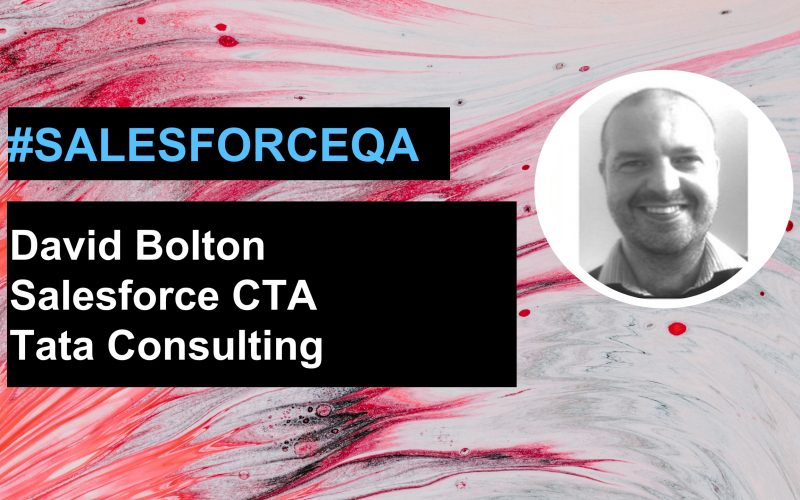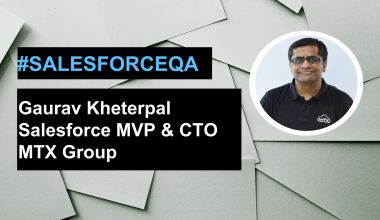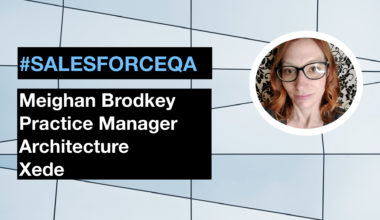In our most recent #SalesforceQA interview, we caught up with Salesforce Certified Architect at Tata Consulting, David Bolton. David offers top tips for others looking to pursue a Salesforce certification and discusses the key trait needed to succeed as a CTA.
Salesforce Republic (SR): To kick off, could you tell us a bit about your career in Salesforce and how you got to where you are today?
David Bolton (DB): I was luck really, back in 2013 I hadn’t really taken any notice of Salesforce, but I was looking to move back to the UK and out of the blue I was contacted by a Salesforce recruiter. They were looking for people in the UK to join their professional services team in Staines. So, I watched a few of Marc Benioff’s YouTube presentations, signed up for a developer org (to do the interview demo) and the rest is history.
I now have the best job I’ve ever had – at Tata Consulting Services – as part of our Centre of Excellence, where I help other architects get their CTA.
SR: You are also a Certified Technical Architect (CTA), could you talk a bit about what inspired you to pursue this accolade?
DB: Being a Certified Technical Architect helps me in my day-to-day role, the scenarios that you prepare for the board are often spookily close to real life scenarios encountered by customers (integrations, large data volumes and so on).
A great benefit of becoming a CTA is that I get to attend the CTA architects session – the day before Dreamforce – which is very cool.
Becoming a Certified Technical Architect is a challenge, but an achievable one and it’s nice to learn, so I would encourage anyone who is thinking about it to do it.
SR: What do you think is the key trait needed to succeed in Salesforce as a Certified Technical Architect?
DB: Never stop learning, the platform changes and there’s so much you can learn from people across the eco-system. By keeping up to date you can also better serve your customers (so I think this is a key point for success).
SR: What advice do you have for others looking to start their journey to become a CTA?
DB: A couple of things:
- It’s a practical skill you are learning – so learn by doing (it’s ok to have a messy dev org!)
- Dedicate time to it
- Write notes
When I was preparing for my CTA board, I was splitting time between, reviewing my notes, walking through common scenarios, and reviewing some key patterns (coding / config) in my org.
SR: You have multiple certifications, could you talk a bit about the process to achieving these and any top tips you have for others considering a certification?
DB: Certifications can be tricky, read the questions carefully and remember you can always re-sit. At the moment I’m looking at the MuleSoft Developer certification, which brings me round in a bit of a circle as in the past I’ve worked on integration projects and tools.
SR: Finally, what is the best piece of advice you have received throughout your career?
DB: In my early career I was on a very stressful project (way before SFDC), things were looking bad and then the project lead just said not to worry – no-one was going to die – it is after all just a case management system. I think having some perspective is something you need in the tech industry.
If you’re a Salesforce professional and would like to be involved in our Q&A series, please get in touch today!


